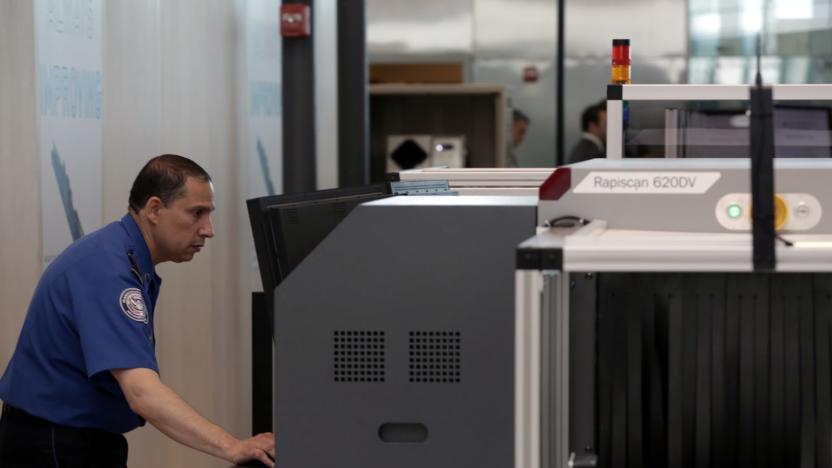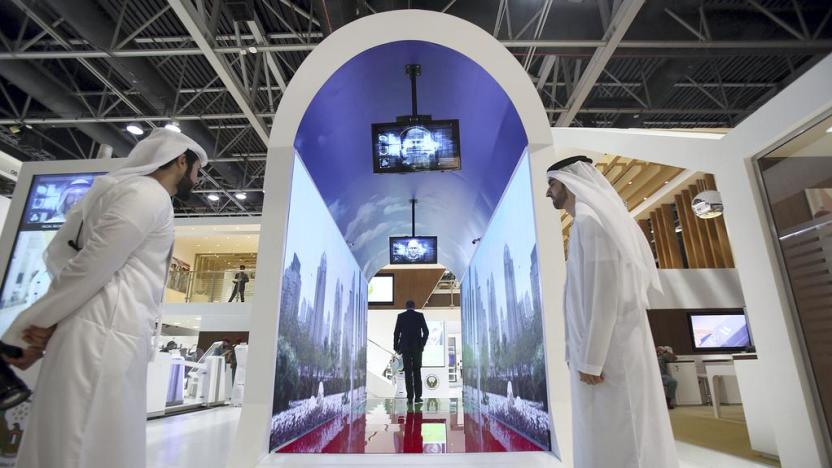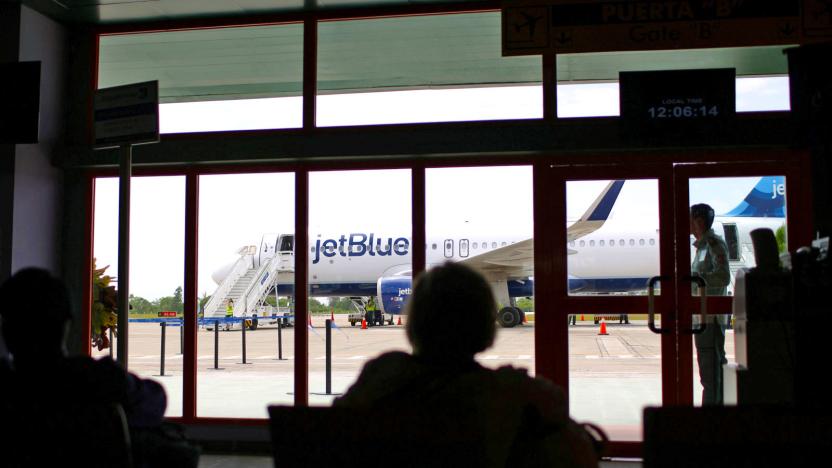facescanning
Latest

Face scanning in US airports is rife with technical problems
If you've had misgivings about the effectiveness of Homeland Security's airport face scanning (let alone the privacy implications), you're not alone. The department's Inspector General has issued a report warning that the scanning system is struggling with "technical and operational challenges." Customs and Border Protection could only use the technology with 85 percent of passengers due to staff shortages, network problems and hastened boarding times during flight delays. The system did catch 1,300 people overstaying their allowed time in the US, but it might have caught more -- and there were problems "consistently" matching people from specific age groups and countries.

Amazon's facial recognition identified lawmakers as lawbreakers
The ACLU put Amazon's Rekognition facial scanning software to the test and the results were more than a little troubling. Comparing "every current member of the House and Senate" against a database of 25,000 publicly available mugshots, Amazon's software identified 28 lawmakers as folks who'd been arrested for a crime. The test cost $12.33.

DHS's facial scanning program may be inaccurate and illegal
The US Department of Homeland Security (DHS) doesn't have a great track record with its own technology. DHS staff have been locked out of their own networks, first responder apps have been plagued by security issues and the federal employees were able to steal data from the agency. Now a new report calls DHS's pilot facial recognition program into question, too, saying that it makes frequent errors and may even not be legal.

Dubai airport will scan your face as you walk through a video tunnel
A lot of passengers come and go through Dubai airports and by 2020, they're expected to play host to some 124 million people. So in an effort to increase the efficiency of security checkpoints, Dubai International Airport is installing a tunnel outfitted with 80 facial recognition and iris scanning cameras, The National reports. The tunnel's walls can display things like virtual aquariums or deserts as well as advertisements and passengers would just have to walk through as they normally would. At the end of the tunnel, a display will either tell the passenger to have a nice trip or will alert officials to take another look.

Firmware suggests the next iPhone will use infrared face unlock
Ever since our close look at an alleged render of the next iPhone back in May, there have been rumors of 3D face scanning plus a large screen-to-body ratio flying about. Today, we finally bring you some solid evidence about these features, courtesy of -- surprise, surprise -- Apple itself. After digging up new details about the Apple HomePod in its leaked firmware, iOS developer Steve Troughton-Smith came across some code that confirm the use of infrared face unlock in BiometricKit for the next iPhone. More interestingly, in the same firmware, fellow developer Guilherme Rambo found an icon that suggests a near-bezel-less design -- one that matches rumored schematics going as far back as late May. For those in doubt, Troughton-Smith assured us that this icon is "specific to D22, the iPhone that has Pearl (Face ID)."

Your face could be your ticket to fly on JetBlue (updated)
Airports are where hopes and dreams go to die. But JetBlue thinks that one method of how people typically pass the time could be used to speed up the boarding process. For some passengers, a taken-at-the-gate photo will suffice to get them to their sky-chair. It's part of a collaboration between the airline and the US Customs and Border Protection (CBP) office, Jetblue announced today.

Police face-scanned 90,000 people at Download music festival
Unbeknownst to Download attendees, Leicestershire Police were using facial recognition software last weekend to identify known crooks. Roughly 90,000 people descended on the music festival, and strategically placed cameras were used to scan their faces and cross-reference them with a European database. Privacy advocates weren't best pleased when Police Oracle first revealed the police's plans, and now the force has come forward to defend its actions. It says the cameras didn't take or store anyone's photograph, and that the software only compared faces against a list of people known to commit crimes at festivals. In addition, all of the data was destroyed at the end of the weekend.

'NBA 2K15's' face scanning creates frightening players
NBA 2K15 arrived today, and with it comes a face-scanning feature that allows you to create a player based on your appearance. Well, as you might expect, the results when you don't sit still are... interesting. The folks over at SB Nation compiled a few of the most awesomely terrible creations, and they're quite scary. Of course, I'm interested to see what this means for the return of "NBA Y2K" in a few weeks. Looking to avoid transforming yourself into some sort of goblin? Here are a few tips for a proper scan. If only you could opt for EA's rig for a bit more accuracy.

Visualized: 3D3 Solutions scans our face in two seconds flat
See that bloke? That's Darren Murph. Well, a digital representation of the human version, anyway. That image was captured in two painless seconds at the hands of 3D3 Solutions, which was on-hand here at SIGGRAPH to demonstrate its newest FlexScan setups. The rig that snapped our face rings up at around $10,000, and relies on a Canon DSLR (strictly for capturing textures), a projector and a secondary camera. As you've likely picked up on, this is hardly designed for average DIYers, but these solutions are also far more detailed and flexible than using Microsoft's Kinect. We're told that the company recently started to support Nikon cameras as well, and for those who'd prefer to use their existing cameras / PJs, a hobbyist-centric software package will allow you to do just that. The only problem? Figuring out where the $2,700 (for software) is going to come from. Head on past the break for a demonstration vid, or peruse the gallery below if you're feeling extra creepy. %Gallery-130289%







